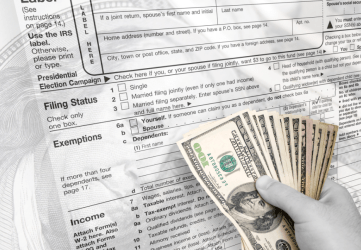How to Obtain a Business Loan
Small businesses are the backbone of the US economy, accounting for nearly half of the country’s economic activity, creating two-thirds of new jobs, and driving innovation. Business loans are the backbone of small business growth. Understanding how to obtain a business loan can increase your chances of being approved for the full loan amount that you request for your business.
Type of Business Loans
Small business owners looking for a cash infusion have plenty of options to choose from, including the following types of loans:
- Bank loans: Traditional loans provided by banks.
- SBA-backed loans: Loans guaranteed by the Small Business Administration.
- Alternative lender loans: Loans from institutions such as Fundbox, BlueVine, Credibly, and Funding Circle.
- Business lines of credit: Flexible funding to cover day-to-day expenses.
- Equipment loans: Loans for buying equipment, machinery, or software.
- Invoice or accounts receivable financing: Loans based on outstanding invoices.
- Merchant cash advances: Advances on future sales.
- Business credit cards: Credit cards used for business expenses.
Identifying your business’s capital needs will make it easier to sort through the many lending options available. Once you have a list of candidates, shop around for the best business loan terms.
Loan Amount
Different types of lenders typically deal in different loan amounts. The average amount of a business loan is approximately $600,000 to $700,000. It can be helpful to look at the average loan amount by lender type to narrow down your list of potential funding sources. ValuePenguin provides the following breakdown by loan size and lender type:
- Large national bank: $593,000
- Small national or regional banks: $146,000
- Alternative lenders: Between $50,000 and $80,000 (but as low as $5,000 and up to $200,000)[2]
The SBA also has useful data on small business loan sizes. SBA data shows that lenders with assets of $50 billion or more provide most small business loans, holding more than 76 percent of them.[3] These lenders are large commercial banks such as Wells Fargo, JP Morgan, and Citibank.
Factors that Lenders Consider
The creditworthiness of your business is a measure of the risk that it presents to lenders. Lenders consider numerous factors when assessing creditworthiness:
- Credit score and report (both your personal credit score and your business credit score)
- Outstanding loans and debts
- Business assets; in particular, current assets such as cash and accounts receivable
- How long you have been in business
- Company investors (lenders may view your business more favorably if it is backed by venture capital, angel investors, or other professional investors)
- Financial statements and accounting records, including the business’s balance sheet; cash flow statements; income and loss statements; debt-to-equity ratio; accounts payable and receivable; earnings before interest, taxes, depreciation, and amortization; and future financial projections
- The value of collateral you can provide
Understanding your credit risk may prove useful for deciding where to apply for a loan. According to a Federal Reserve report, in 2020, just 37 percent of loan applicants received all of the money that they sought, but there was a significant difference between firms with low credit risk (45 percent received all of the financing sought), medium risk (22 percent received all of the funding sought), and high credit risk (7 percent received all of the funding sought).[5]
Preparing Your Loan Application
Business loan applications require a lot of documentation. However, requirements vary by lender, so make sure you know what you need to submit. At a minimum, be prepared to include the following in your application:
- Amount of loan requested
- Business plan
- Business name and federal tax ID number
- Financial statements for the past two to five years
- Tax returns for the past two to five years
- Bank statements
- Business credit report
- Leases and business licenses
- Tax returns of the business
- Insurance policy documentation
Generally, lenders prefer financial statements that have been audited or reviewed by a certified public accountant. It may be beneficial to work with a business law attorney during the loan process as well. An attorney can help you identify an appropriate loan for your business, collect the proper documentation, advise on laws and regulations, review loan documents, and more.
Get Professional Help with Business Loans
Questions about applying for a business loan? Our law office can help you navigate the lending process. Please contact us to schedule a meeting with one of our business attorneys in Delaware.
Contact an experienced tax attorney at The Law Office of Jason Carr, PLLC for help in resolving your tax issues in Delaware.






